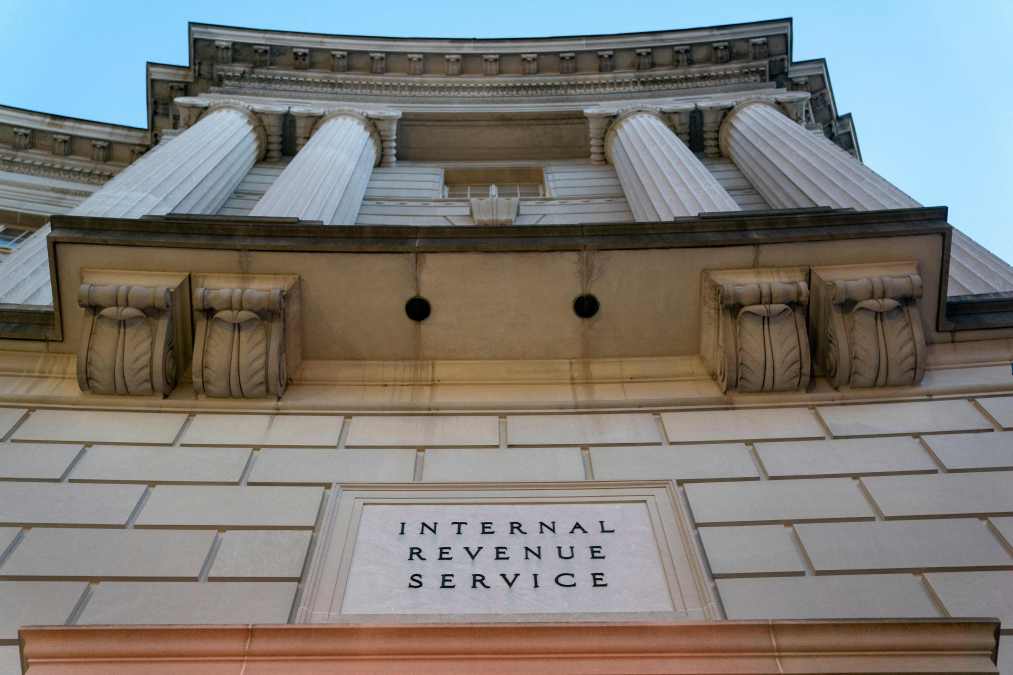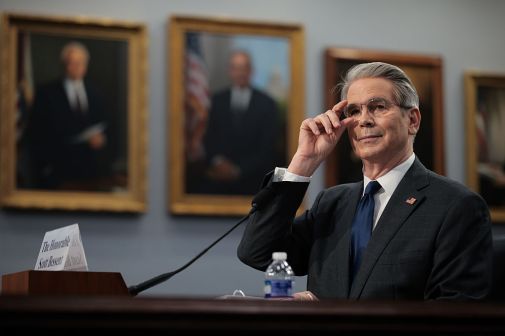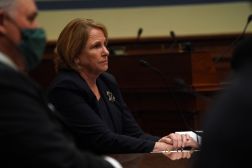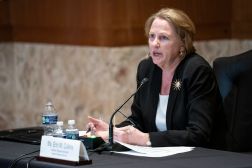Federal workforce cuts would curb IRS modernization, former National Taxpayer Advocate says

The Trump administration’s ongoing decimation of the federal workforce could derail efforts to modernize Internal Revenue Service IT systems, the former National Taxpayer Advocate said Tuesday.
During a House Ways and Means Oversight Subcommittee hearing on IRS modernization, Rep. Judy Chu, D-Calif., asked Nina Olson, the independent “voice of the taxpayer” at the agency from 2001 to 2019, about the potential impact of the administration’s deferred resignation offer and other “coerced job cuts and firings.”
Olson, now the executive director of the Center for Taxpayer Rights, said that to do “true modernization,” the IRS needs to retain workers with institutional knowledge instead of “trying to just willy-nilly disappear people or get them to retire.”
If the IRS does get gutted in that sort of scattershot approach, Olson said she can see “the most talented people leaving because they can find their places in the private sector.”
“So what you’ve done is a brain drain from the IRS, which will mean that modernization will not occur with that knowledge,” Olson added. “Outside contractors cannot bring that internal knowledge of tax administration and the tax system, no matter how talented they are.”
Chu then asked if broad staff reductions at the agency would save taxpayers money.
“I doubt it in the long run,” Olson replied.
The National Taxpayers Union, a fiscally conservative advocacy organization, gave the IRS a “D” grade last year for its modernization efforts, saying that the agency “should be much further in its technological modernization now that it has spent nearly one-third of its Inflation Reduction Act business system modernization funding.”
NTU President Pete Sepp said during Tuesday’s hearing that IRS metrics on its modernization progress “aren’t adequate,” though he agreed with an assessment from Olson that there have been notable improvements, pointing to more simplified notices, letters and forms.
But in other categories, such as progress in scanning and customer service technologies, “they’re still not making the grade,” Sepp said. “We’ve got to help them do better.”
DOGE data drama
The rooting around in Treasury Department systems by Department of Government Efficiency liaisons sparked plenty of discussion during Tuesday’s hearing, with Oversight Democrats sounding alarms on the privacy of Americans’ personal and financial information.
Rep. Lloyd Doggett, D-Texas, forcefully pushed back on claims by Elon Musk and Republican subcommittee members that DOGE has been transparent about its activities, particularly with regard to Bureau of Fiscal Service access. It’s unclear, Doggett said, whether those Musk associates received background checks and obtained security clearances, and whether they had read-only access or were able to alter code.
“Mr. Musk has never been elected to anything, and yet, through his minions, his musketeers, he’s been accorded access to the most confidential information on every American citizen, information about Social Security, about health care, about bank accounts, about tax return information that is so sensitive that if you expose it improperly, you can go to prison for five years,” Doggett said. “The safeguards on this abusive use of this information are lacking.”
Multiple Republican members, including Reps. Rudy Yakym of Indiana and Beth Van Duyne of Texas, argued that Democratic concerns about potential DOGE security lapses were especially misplaced given the unauthorized disclosure of thousands of tax returns by a former IRS contractor. Charles Littlejohn was sentenced in 2024 to five years in prison for leaking the returns of President Donald Trump and thousands of wealthy Americans.
But Democrats weren’t buying the connection: Rep. Mike Thompson of California said Littlejohn is “where he belongs” and noted the “near unanimous support” on the subcommittee for legislation that would increase penalties for individuals who commit the same crimes. Rep. Tom Suozzi of New York said that anyone who violates Internal Revenue Code 6103 by taking private data and sharing it with others “should be prosecuted to the full extent of the law.”
In response to questioning from House Oversight ranking member Terri Sewell, Olson noted that confidential taxpayer information is protected by section 6103, and as a “confidentiality hawk,” she shared the Alabama Democrat’s concerns about improper accessing of that data.
If DOGE or any contractor or federal employee gains authorized access to a person’s data, Olson said there should be notification procedures in place. If affected individuals are afforded that kind of transparency, they’ll at least have some legal recourse, she said.
“The problem is getting that disclosure, and that’s what’s serious right now,” Olson said. “We don’t know.”






